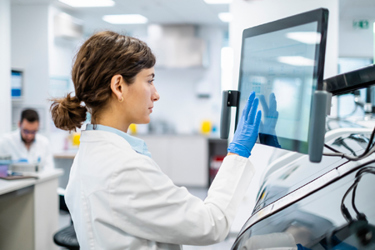Successful Cell-Based ADA Collaboration In mRNA Gene Replacement Therapy

In a collaborative project with a U.S.-based biotech company developing an mRNA-based gene replacement therapy in the respiratory field, Eurofins Bioanalytical Services was tasked with creating a cell-based anti-drug antibody (ADA) detection method. The challenge stemmed from the therapeutic's transmembrane nature, which prevented isolation and preservation of the target protein’s structure. As a solution, engineered cells expressing the full-length target protein were employed.
Initially, the client proposed a 5-day in-cell ELISA assay, but it presented high variability, required extensive labor, and involved the use of formaldehyde, raising environmental and safety concerns. Additionally, the method was prone to inconsistencies due to continuous subculturing and environmental fluctuations.
Eurofins, working closely with the client, transitioned the approach to a lysate-based method using single large-scale cell preparations. This shift significantly reduced background noise, variability between patient samples, and assay complexity. The updated assay achieved superior sensitivity (360 ng/ml), exceeding regulatory expectations and drastically outperforming the original method (>10 µg/ml sensitivity). It also shortened the process to a single day, improving throughput and turnaround times.
Samples were tested in both induced and non-induced cells, and assay outcomes were based on response ratios, further enhancing specificity. The method was successfully validated per industry guidelines, demonstrating Eurofins’ ability to tailor solutions to complex bioanalytical challenges under tight timelines. This case underscores the value of client collaboration and innovative method development in advancing clinical-stage therapies.
Get unlimited access to:
Enter your credentials below to log in. Not yet a member of Cell & Gene? Subscribe today.
